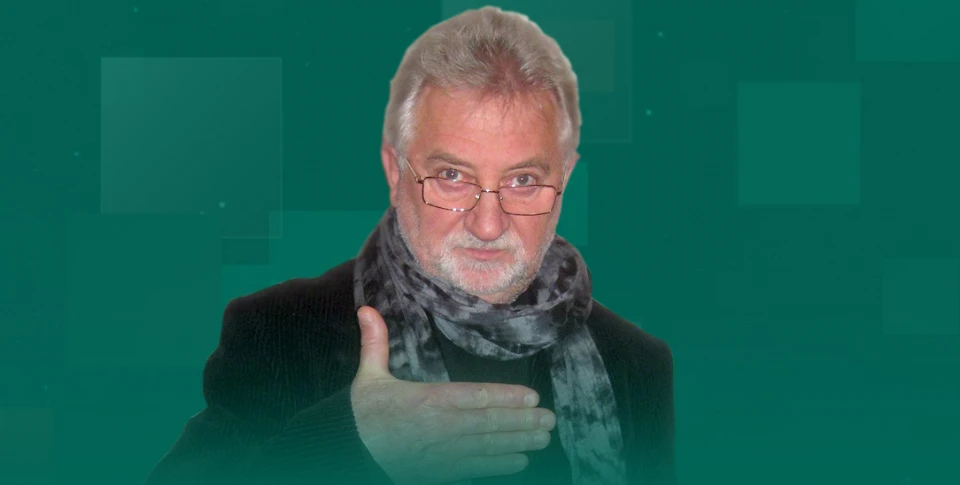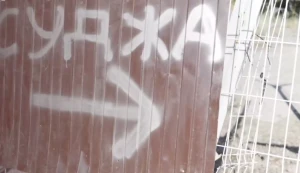
When Russia's war against Ukraine ends…
When will the war end? This is one of the most pressing questions facing every Ukrainian today. It concerns not only the preservation of the country but also the lives and living space of each one of us
However, an equally important question arises: how and under what conditions will this long and bloody confrontation end? Will the titanic efforts and incredible sacrifices of our sons and daughters to defend every inch of Ukrainian land prove futile if we are eventually forced to cede a fifth of our territory to the overwhelming might of Moscow's swamp hordes?
One thing is clear: the war’s conclusion now depends less on the amount of weaponry or military personnel. The previous three years of war demonstrated that the collective West's aid to Ukraine, amounting to over $200 billion, is not the final argument in favor of victory. Everything depended on how this aid was utilized, the quality of the weapons, and the timeliness of their delivery.
"The “drip-feeding” approach to military assistance, championed by the administration of an increasingly frail President Joe Biden, proved ineffective. Delivering small batches of even advanced weapons into the global grindstone of a large-scale war did not yield the desired results, although it undoubtedly helped (particularly in the early stages of the war) to hold the line. But it was not a strategy for victory."
Now, many are questioning whether our partners ever had a strategy. Europe and the United States, while expressing their support for Ukraine in its just war and declaring their unwavering commitment to values and the global order blatantly violated by the Russians, were unprepared for a serious confrontation. They were paralyzed by fear of escalation, a threat repeatedly brandished by the Kremlin.
The fear of a large-scale war and the lack of trust in Ukrainian leadership prevented Western leaders from providing the Ukrainian Armed Forces with a sufficient arsenal of modern weaponry at the onset of the invasion. Yet, by late 2022, the Ukrainian army, which was on the strategic offensive, could have expelled Russian hordes beyond its borders. This could have brought the conflict to an end, allowing us to put a period to it. A significant political shift, if not the collapse of the northern empire, might have occurred in Russia. Ironically, it was this prospect that Western leaders feared most.
But events unfolded as they did. Joe Biden and the American Democrats paid the price for their anemic policies, suffering a disastrous defeat in the presidential and congressional elections. This not only raised questions about aid to Ukraine but also about a potential shift in the global order.
The next U.S. president, Donald Trump—a decisive yet unpredictable figure devoid of both statesmanship and strategic thinking—has long threatened to dismantle the Euro-Atlantic alliance. This alliance has guaranteed successful development and peace in Europe and North America for the past 70 years.
Donald Trump has made some reassessments recently, but how productive are they? While he promises to achieve an immediate end to the war between Russia and Ukraine, he doesn’t answer the critical questions that arise in the process.
“First and foremost: how fair can this peace be if Russia has already absorbed 20% of our territory and is currently on a tactical offensive that Ukraine cannot halt, even with the weapons provided by Western partners?”
Bitter as it may be to admit, Vladimir Putin’s Moscow, which spent 20 years preparing for this war, is employing far more advanced weaponry in combat than Ukraine has received from its Western allies. Furthermore, Washington still does not permit the use of long-range weapons on Russian territory, even the ones it supplied.
So, if the West is so afraid of Russia, why should the Moscow dictator make any concessions, even to the U.S. President?
The situation seems bleak—unless we consider the human factor. The point is that the new U.S. president, Donald Trump, has taken it upon himself to resolve this issue. Trump, despite his well-known flaws, possesses traits of a strong and decisive leader—qualities his predecessor lacked. Additionally, he is extraordinarily ambitious, proud, and uncompromising.
Trump considers himself the best negotiator in the world. He calls on Vladimir Putin, the “gas station president,” to stop the war that Putin himself started by violating the foundational Helsinki Accords on the inviolability of European borders—agreements that Moscow signed and ratified. Trump insists on establishing a fair peace, one he has promised to the entire world.
Putin, accustomed to seeing fear in the eyes of the West, predictably rejects the proposal for fair peace from the president of the most powerful country in the world. Instead, he offers terms that negate all the Helsinki Accords, erase Ukraine as a nation, and insult the best negotiator in the world with his obstinacy and narrow-mindedness.
“Putin fails to realize that, in this case, he is essentially engaging in dialogue with the entire civilized world. And this world is represented by the president of the most powerful country, who is just taking office and wants to start with major accomplishments. He will not tolerate such a brutal insult to the greatest negotiator of all time.”
This sets the stage for an intriguing turn of events. Trump, deeply offended, decides to show Putin who is the strongest and who must be obeyed. He authorizes Ukrainians to use highly effective and destructive long-range missiles—Anglo-French and American—on Russian territory. Later, the Germans join in with their Taurus missiles.
All these missiles, combined with the new Ukrainian ones, easily reach Moscow and its key strategic targets in the European part of Russia.
…One morning, Vladimir wakes up, crawls out of his Kremlin bunker, and peers through the periscope at Moscow, only to see that his Ministry of Defense is gone, along with the General Staff and all its invaders…
The effect is staggering. What will Vladimir Putin do next, knowing that NATO, besides its leader's newfound resolve, also possesses Tomahawk missiles capable of wiping Moscow off the face of the earth within hours?
Exactly. Activating what remains of his primitive reasoning, he signals his willingness to agree to reasonable peace terms dictated by the West. The interesting part is now seeing what Donald Trump will demand of him and how favorable these terms will be for Ukraine.
There are other possible scenarios for stopping the war—not achieving peace, but merely halting the conflict and securing a ceasefire.
“Under Western pressure, both sides agree to freeze the conflict along the current front lines. A buffer zone is established (though it’s unclear whose side it will favor and who will oversee the enforcement of these agreements). Ukraine is forced to commit to a 20-year ban on joining NATO, reducing its army to police forces, and relinquishing heavy weaponry.”
Russia, on the other hand, takes no obligations apart from ceasing hostilities. In other words, this amounts to a thinly veiled capitulation by Ukraine, a situation the new American president might orchestrate, ignoring international treaties and agreements entirely.
In essence, the West accepts the nullification of the Helsinki Accords and the beginning of a new world order reshuffle.
In response, Western intellectuals warn Donald Trump that he, alongside Vladimir Putin, will be remembered as an antihero and co-creator of a new destructive reality, at least for the European continent. They promise to inscribe this legacy in his historical record in bold letters.
Trump doesn’t like this realization. Eventually, he begins to understand that his advisors gave him poor counsel, and he fires them all. Indeed, this truce satisfies no one. It only takes a spark to reignite hostilities and launch a new full-scale war. Trump then returns to the previous plan, one that, while carrying significant risks of a large-scale conflict, could quickly restore the status quo.
However, it remains unclear how this will impact Ukraine’s future and development. Will the victory of heroic Ukrainians (along with the highest government positions) be claimed by opportunistic figures from Presidential Office?
About the author. Viktor Moroz, Ukrainian publicist, columnist.
The editors don't always share the opinions expressed by the authors of the blogs.
- News












































